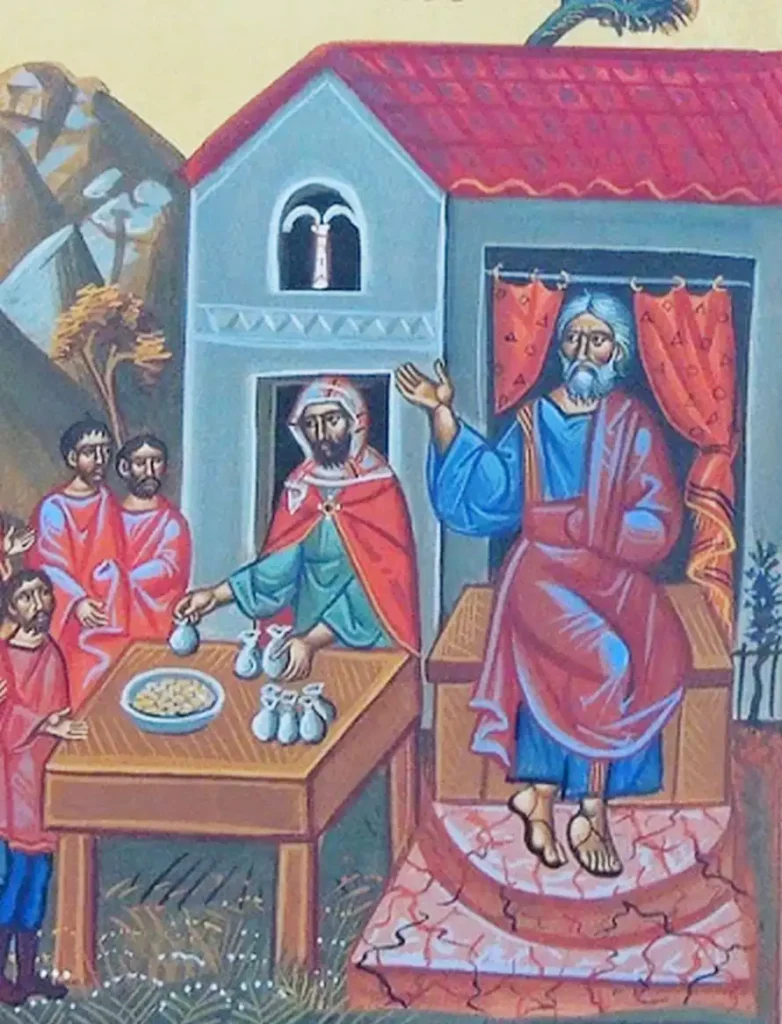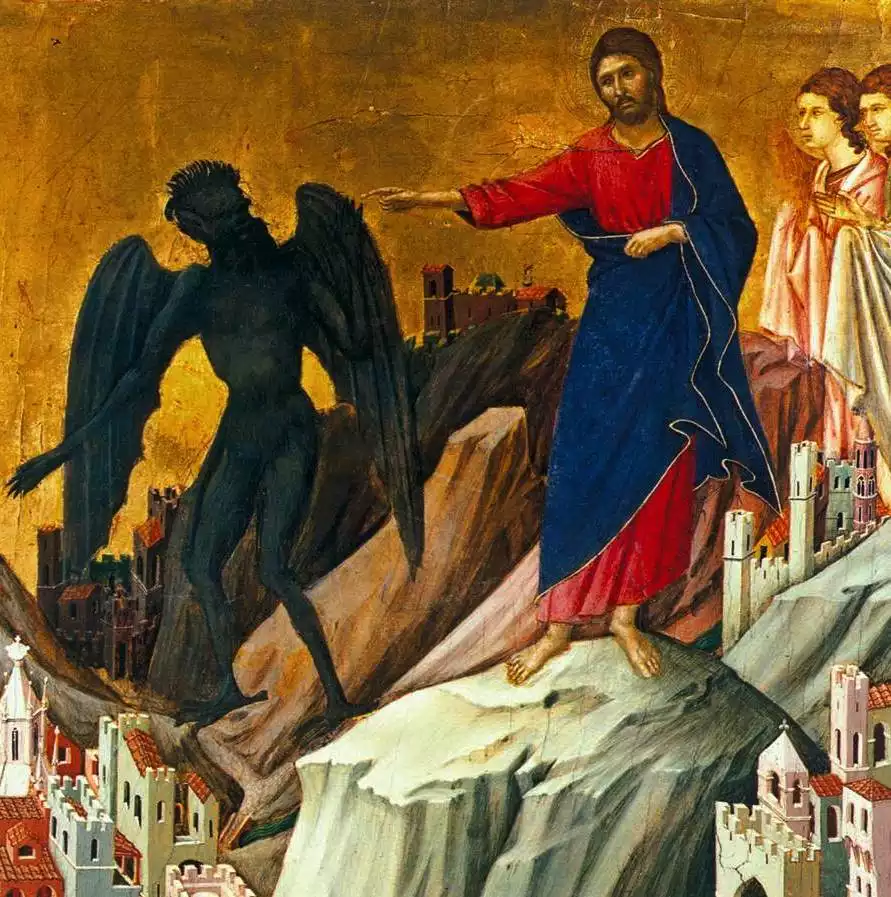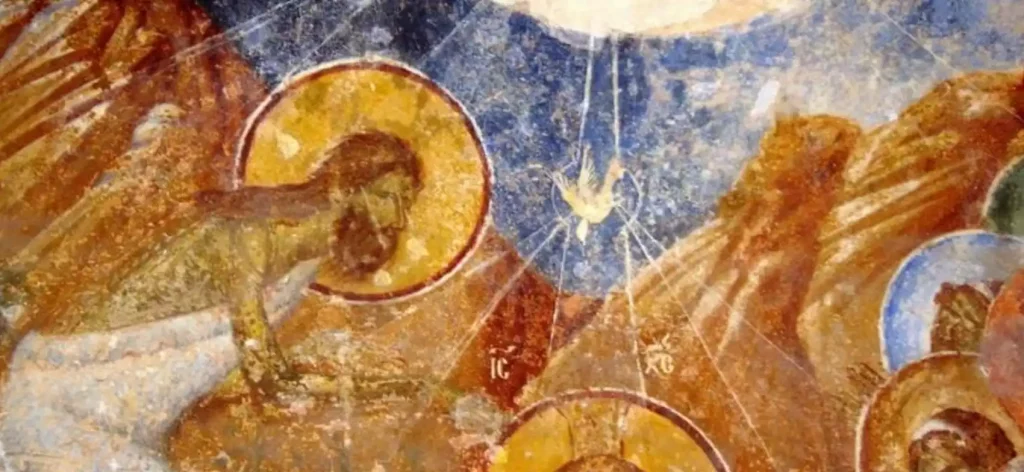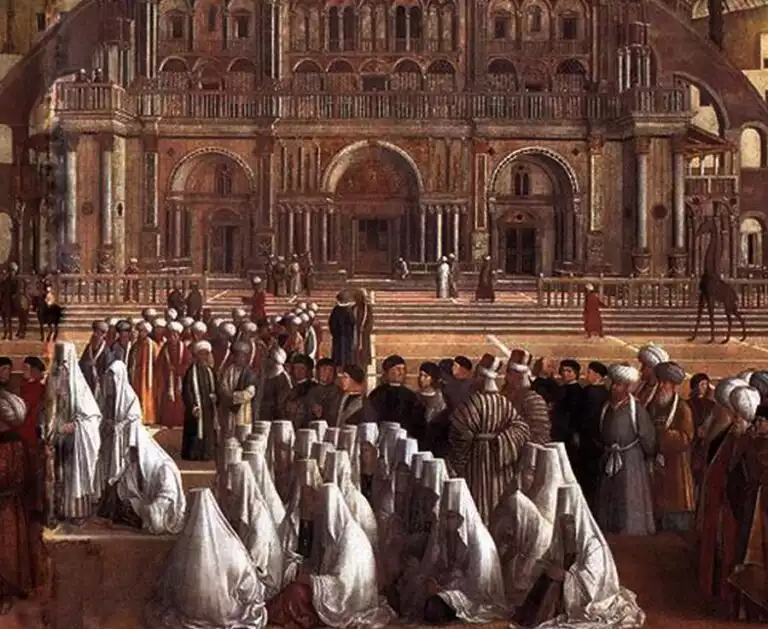Zebadiah | זְבַדְיָה (Hebrew) | Name
Etymology and Semantic Analysis of Zebadiah The name “Zebadiah” originates from the Hebrew word זְבַדְיָה (Z’vadyah), which means “Yahweh has bestowed” or “Gift of Yahweh.” This name is composed of two elements: זָבַד (zavad), meaning “to give,” and יָה (Yah), a shortened form of יְהוֹוָה (YHWH), the tetragrammaton, representing the name of God in the […]
The Parable of the Talents | 16th Sunday of Matthew

(Matthew 25:14-30) The parable of the talents in the Gospel of Matthew contains an important message about how we should view and use the abilities God grants us. As the story illustrates through the contrasting examples of the faithful and lazy servants, we have a duty to cultivate our talents rather than waste them selfishly. […]
Yearn | ἐπιποθέω (epipotheó) – verb
Etymology and Semantic Analysis The English word “yearn” traces back to the Old English “georn” meaning “eager, craving, or desirous.” In the Bible, the Greek word ἐπιποθέω (epipotheó) conveys a similar meaning of intense longing or craving. This compound word combines epi meaning “focused on” and potheó meaning “to desire.” It expresses an emphatic, ongoing […]
Devil | Διάβολος: The Many Faces of Evil

The figure of “the Devil” appears in various forms throughout the Bible, from the talking serpent in Genesis to the dragon of Revelation. He is depicted as tempter, accuser, fallen angel, and personification of evil. This complex character has roots in ancient Jewish and early Christian texts and has evolved significantly over the centuries. While […]
Biblical Desert | ἔρημος (Greek), מדבר (Hebrew)
Etymology and Semantic Analysis The term ‘desert’ in the Bible is translated from the Greek word ‘ἔρημος’ (erēmos) and the Hebrew word ‘מדבר’ (midbar). In Greek, ‘ἔρημος’ primarily conveys the notion of a solitary, uninhabited, or desolate place. In Hebrew, ‘מדבר’ also suggests a wilderness or an uninhabited land. These words are often found in […]
Biblical Fig | Biblical Lexicon | σῦκον (Greek)
Etymology and Semantic Analysis The English word ‘fig’ traces back to the Old English ‘fic’, which itself derives from the Latin ‘ficus’, signifying the fruit. In the Bible, the original Greek word used is σῦκον (sykon), a noun describing the fruit of the fig tree. This term appears in various contexts across both the New […]
Uncreated Light: Path to Spiritual Awakening

Uncreated Light, a term deeply rooted in theological discourse, symbolizes a profound spiritual journey into the realms of divine radiance. This ethereal concept, often associated with mystical experiences and the divine presence, has captivated theologians and believers alike through the ages. Uncreated Light represents not just a physical phenomenon, but a metaphysical illumination, believed to be a direct manifestation of God’s grace and glory. The exploration of this concept offers a unique insight into the relationship between humanity and the divine, transcending traditional religious narratives. Delving into historical accounts, personal testimonies, and theological interpretations, this article sheds light on the significance of Uncreated Light in various religious traditions, its impact on spiritual practices, and its enduring legacy in shaping spiritual understanding.
On Life in Christ. First Discourse (A’) – Kabasilas Nikolaos
Of the most wise and learned and in all respects most holy Lord Saint Nikolaos Kabasilas, also called Chamaetos On Life in Christ, (A’) First Discourse: that it consists through the divine mysteries, of baptism, chrism and divine communion. Life in Christ is conceived in this life and takes its beginnings here; but it is […]
Alleluia | The Multifaceted Significance of a Sacred Exclamation

Alleluia, a term resonant with spiritual profundity, serves as an exclamation of praise and worship within various religious traditions. This word, embodying a jubilant spirit, is frequently encountered in Christian liturgies and hymns, symbolizing joyous acclamation and divine adoration. Its etymological roots can be traced to the Hebrew phrase “Hallelujah,” which translates to “Praise the […]
